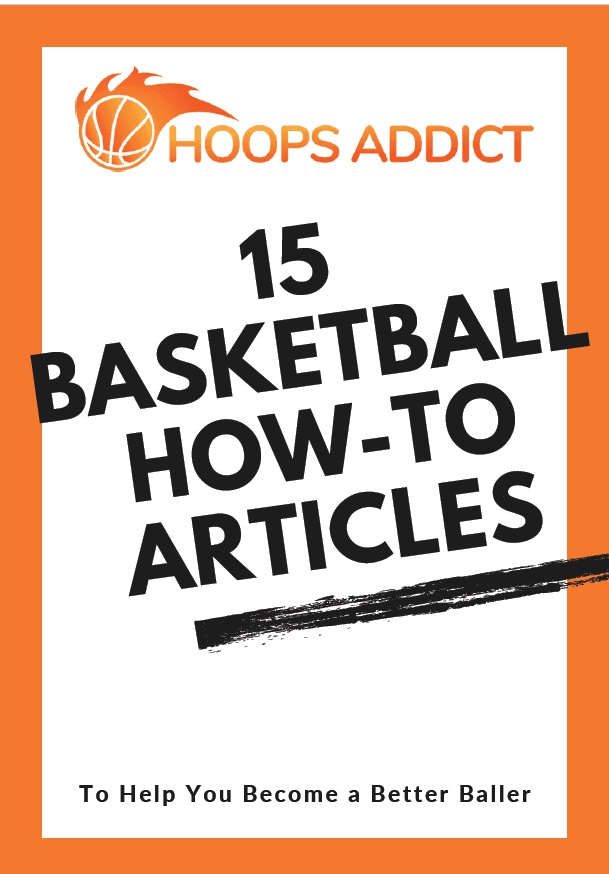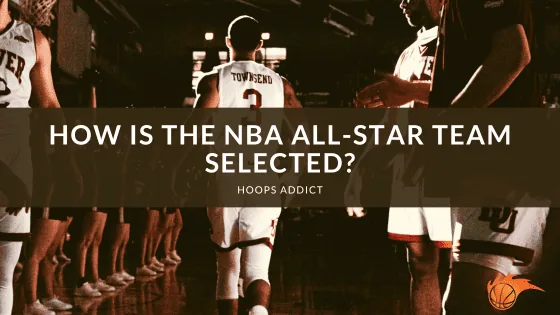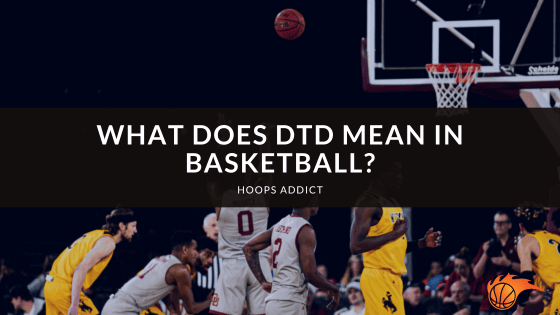Sometimes, when we hear the tremendous amount NBA players get paid, we can’t help but ask ourselves, do NBA players pay taxes? If yes, how much? Surely, it’s an extremely high amount because these guys get paid millions. Well, ponder no more. Today, we will discuss everything you need to understand about NBA player contracts and taxes. By the end of this article, we’ll make sure you have a thorough understanding of how taxes work for NBA players.
 Do NBA Players Pay Taxes?
Do NBA Players Pay Taxes?
So, do NBA players pay taxes? Well, the short answer is yes. All NBA players pay taxes. There are many different types of taxes in the United States, and even if a player is exempt or is unaffected by a particular type, there are others that they will have to pay. The three types of taxes that NBA players have to pay our federal taxes, city and state taxes, and Jock taxes.
Jock taxes? What’s that? Originally known as the Michael Jordan’s revenge tax, Jock taxes originated in two states, California and Illinois, in 1991. After the conclusion of the NBA finals in 1991, California charged state income taxes to the Chicago Bulls team, who came to Los Angeles to play the Lakers in the finals.
Because of this, the state of Illinois decided to enact the same law against all other NBA players who came to Chicago to play. Hence the name Michael Jordan’s Revenge. Because of this, other states, except a few, followed the same concept.
Since this type of tax mostly affects athletes, it was given the name Jock taxes. There are no Jock tax charges for players who go to play in the states of Texas, Florida, and Tennessee.
In the United States, all NBA players are subjected to 37% federal tax against their income. In Canada, players for the Toronto Raptors are subjected to a 33% tax. This is by far the largest tax amount that is deducted from NBA player salaries. Following the federal taxes are the state and city taxes. Of the 30 NBA teams, only six are in states that do not charge state taxes. These six teams are the Dallas Mavericks, Houston Rockets, San Antonio Spurs, Memphis Grizzlies, Miami Heat, and the Orlando Magic. They are located in Texas, Tennessee, and Florida.
The amount of taxes charged by the other states will vary significantly. The state that charges the largest income tax would be Toronto (13.16%), followed by Los Angeles (12.3%). And the state that charges taxes but charges the least is Pennsylvania (3.07%).
 How Taxes Work for NBA Players?
How Taxes Work for NBA Players?
The process of taxation for NBA players is standard. What will happen is the teams withhold the amount of taxes from the athlete’s paycheck throughout the year. Afterward, the team sends these tax funds to the IRS on the athlete’s behalf. The IRS applies the amounts directly toward the athlete’s tax bill for the year.
In cases where the athlete receives additional income from endorsements or other sources, a tax amount is deducted, but it is treated differently from their regular salary and bonuses. The IRS considers this type of funds self-employment income, so they are subjected to self-employment taxes. This is a type of tax that the athletes will have to file with the IRS themselves, as the team won’t send it in.
Additionally, Jock taxes are also taken from NBA player’s salaries depending on the amount of games and work-related events they participated in in states that charge Jock taxes.
What are the Types of NBA Contracts?
There are many types of NBA contracts that players can be eligible to sign. You may be familiar with some of these contracts, but you may not be so familiar with others. Let’s take a look at each and how they work:
Uniform Player Contract
This type of contract is the most basic and most common type of NBA contract for players in the league. This is an open contract that allows the player and the team to formulate whatever agreement they both think works for each party. For example, the player and the team agree to an amount; they can also agree to include or not include a no-trade clause and whatever other agreements that both parties like. As it relates to salary, there is a minimum and maximum amount, but apart from that, the team and player can agree to whatever amount.
Max Contract
A max contract is one where a player is offered the maximum amount of money the team is allowed to give them based on the number of years that they have played in the league. Players who have played less than 6 years in the NBA can get a maximum contract offer of 25% of the salary cap. For players in the league for 7 to 9 years, that max amount is increased to 30% of the annual salary cap. Finally, players in the league for 10 or more years can get a maximum contract of 35% of the salary cap.
Supe-Max Contract
The super-max contract can only be offered to players who have been in the NBA for at least 7 seasons and are still with the team they played for on their rookie deal. The super-max is initially offered at 35% of the salary cap, but that amount increases by 8% annually.
Rookie Scale Contracts
As the name suggests, this type of contract is offered to rookies only. It is between a team and their first-round draft pick, and it guarantees two seasons with a team option for the third and fourth seasons. Rookie scale contracts are normally paid based on where the player was selected in the draft. As you can guess, earlier draft picks will receive more than lower ones.
Designated Veteran Player Contract
The designated veteran contract is available to players who have been in the league between 7 and 9 years. After signing this contract, a player must stay with the team for at least one season before they’re eligible to be traded. Speaking of eligibility, for a player to be eligible for this contract in the first place, they must have only played for one team throughout the course of their career or have changed teams only via trade in their first four seasons. The designated veteran player contract provides a large salary amount, offered at 30-35% of the salary cap.
Two-way Contract
Two-way contracts are contracts given to players that are signed to both an NBA team and an NBA G league team. The salary compensation for these contracts is equal to half of whatever the rookie minimum for the season is. Players can only be offered a two-way deal for a maximum of two seasons, and this has to be within their first three years in the NBA. A team in the NBA can only use two-way players on their roster for a maximum of 50 games each season.
10-day Contracts
As the name suggests, a 10-day contract lasts for 10 days or three games, whatever comes first. The salary compensation for 10-day contracts depends on the number of years a player has been in the league previously.
Veteran Minimum Contracts
Veteran minimum deals depend on the veteran’s years of experience. A veteran with 4 years of NBA experience will earn 2.1 million, while a veteran with 10 or more years will earn 3.1 million for the same contract.
 How Much Do NBA Players Earn After Taxes?
How Much Do NBA Players Earn After Taxes?
Many factors affect how much individual NBA players will earn after their taxes have been subtracted from their salaries. The first and biggest deciding factor depends on the amount of salary they receive in the first place. As you can imagine, a player on a super-max deal will receive significantly more after taxes than a player on a minimum contract.
Another thing that influence the amount player takes home after their taxes have been deducted is the amount of money they make from endorsements and other type of sponsorship earnings. Since these contribute to their overall income and are taxed differently, the final amount they receive will vary from other guys in the league.
Another important thing that determines how much money a player takes home after taxes is the different types of taxes that their salaries are subjected to. Some players play in states that charge state taxes, and others don’t. They won’t feel the burden of the taxman from their state. All of this is basically saying there is no set number or percentage for the entire league as there are too many variables involved.
 Do NBA Players Pay Taxes in Every State They Play In?
Do NBA Players Pay Taxes in Every State They Play In?
The short answer to this question is no. You see, not every state in the USA charges taxes, so even though players are subjected to jock taxes in most states they play in, they aren’t subjected to jock and state taxes in all of them. Players will pay taxes for playing in every state except Texas, Florida, and Tennessee
 How Do Foreign NBA Players Pay Taxes?
How Do Foreign NBA Players Pay Taxes?
Yes, all NBA players’ income is taxable. This is true even for foreign players. Foreigners are classified into two categories for tax purposes. Resident Aliens and Non-Resident Aliens. Players in the US for over 183 days for the year are classified as Resident Aliens, and all their worldwide earned income is subject to US tax. Non-resident aliens who aren’t in the country that long are also taxed but only on the income they make from activities in the US.
Additionally, based on the laws of their own countries, players could be subjected to pay taxes from their NBA salaries when they return home.
 How Much Do Famous NBA Stars Earn After Taxes?
How Much Do Famous NBA Stars Earn After Taxes?
This is a tricky question. NBA players don’t publish all of the amounts they pay out in fees such as insurance, 401K, agents, and a whole lot more, or all of the money they earn from various other sources of income like sponsorships and endorsements (taxed differently from NBA main salary). Additionally, players will pay different amounts on Jock taxes each year depending on the amount of work days they spend in a state. This makes it hard to say how much they make after it’s all said and done.
Wrapping Things Up: How Much Do NBA Players Take Home After Taxes?
It is surprising when you hear for the first time that players in the US pay 37% federal taxes, and the players in Canada pay 33% federal taxes from their salaries. That’s just the base tax amount.
Players are subjected to state taxes and Jock taxes as well. The final amount they receive after their taxes and other deductions have been taken from their salary differs from player to player based on their initial salary, endorsements, location, and other deductions such as 401k, agent fees, and so on.
We hope you enjoyed this post! If you did, be sure to check out our other basketball FAQ articles here.
Want to get better at basketball?
Join our newsletter & get our comprehensive
101-page basketball guide.
Become a better baller today 👇


 Do NBA Players Pay Taxes?
Do NBA Players Pay Taxes? How Taxes Work for NBA Players?
How Taxes Work for NBA Players? How Much Do NBA Players Earn After Taxes?
How Much Do NBA Players Earn After Taxes? Do NBA Players Pay Taxes in Every State They Play In?
Do NBA Players Pay Taxes in Every State They Play In? How Do Foreign NBA Players Pay Taxes?
How Do Foreign NBA Players Pay Taxes? How Much Do Famous NBA Stars Earn After Taxes?
How Much Do Famous NBA Stars Earn After Taxes?

